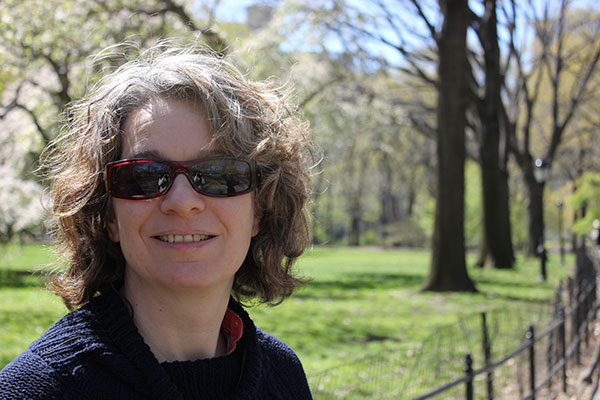Davina Cooper, Professor of Law & Political Theory at Kent Law School, examines the idea of academic work as a form of public action rather than possession in a post featured on the Impact of Social Sciences blog hosted by the London School of Economics.
In her post entitled Whose ideas are they anyway? Academic work as a form of public action, rather than possession, Professor Cooper challenges the concept of academic creations as property and argues that public action may provide a better way of thinking about the development of ideas and the recognition of others.
Professor Cooper comments: ‘Teaching undergraduate students in Britain, the injunction not to plagiarise is one learned early, if not always well. Stealing ideas and phrases from published writers (or other students), we tell our classes, is a serious offence – far more damaging to their future career prospects than other unlicensed takings. And yet ideas are not like items of clothing, furniture or food where one person’s appropriation diminishes what’s left for others.
‘Maybe, paradoxically, this is what makes intellectual theft so serious – that the taking is often invisible. Who knows if someone is claiming credit for your thoughts? You may find out years later or you may never know. But, then, what have you lost? Like others, I sometimes worry about such (imagined) takings. But is the loss simply in the value another gains from work they haven’t worked for? Or does the loss lie in diminished recognition; is recognition something we can lose even when we don’t know we have lost it?’
Professor Cooper goes on to explore the concept of ideas as belongings or as belonging to the person who created them: ‘Whether we see ideas as belongings or belonging, a powerful assumption endures – that their pedigree or provenance can be known. Tracing back to the creator or moral owner of an idea may prove difficult; it may prove impossible; but, theoretically at least, there is someone there to find. Or is there? Like animate beings, our intellectual off-spring has been spawned by a vast and fluctuating network of participants stretching through time. While we may be able to identify the imprint of certain ancestors in a particular concept, thought or turn of phrase; others who’ve made a difference remain unfound.’
In considering ideas as a form of action, Professor Cooper discusses Hannah Arendt’s conception of public action: ‘As an organising concept, public action sadly may not negate the individualism pervading much academic life. But does it at least offer a better framework than possession for thinking about academics’ desire (and institutional requirements) for recognition and visibility? Does it help, for instance, to alleviate the concern that sharing new ideas at a conference with unknown others is akin to leaving valuable jewellery in a restaurant bathroom for anyone to take?’
In her conclusion, Professor Cooper argues: ‘If academic work is a collaborative form of public action, we can think about recognition differently; less oriented to questions of debt and of who ideas belong to, and more to the question of who we choose to recognise as sharing and contributing to our intellectual worlds.
‘This doesn’t remove the obligations on academics to treat others seriously (and sometimes playfully). It does though mean approaching these obligations in ways oriented to a different kind of task. If we recognise a moral responsibility to make visible, in what we write, those thinking alongside us – who may also come before us and even after us – might this help build a different kind of publishing culture, making it easier, even essential, to share ideas not yet written in public?’
Read the post in full on the Impact of Social Sciences blog.
The Impact of Social Sciences blog is run by the Public Policy Group at the London School of Economics (LSE), and is a hub for researchers, administrative staff, librarians, students, think-tanks, government, and anyone else interested in maximising the impact of academic work in the social sciences and other disciplines.
Professor Cooper is a Professor of Law & Political Theory at the University of Kent. She writes on political concepts, sites and struggles for social transformation. For details of her research interests and publications, the most recent of which is the bookEveryday Utopias: The Conceptual Life of Promising Spaces, visit her staff profile page.
Professor Cooper also explores a range of current conceptual, political and cultural issues on her blog, Social Politics and Stuff.

